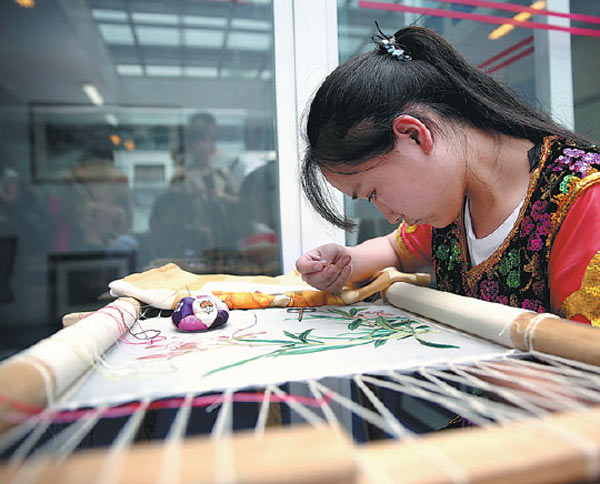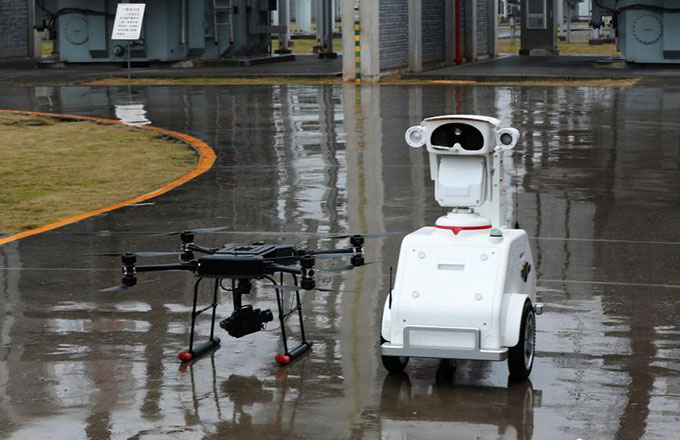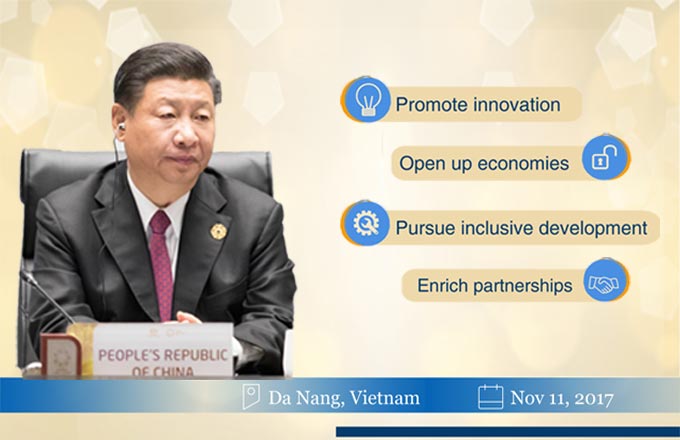New industrial era boosts technical schools
 |
|
A student practices embroidery at Yunnan Technician College in Kunming.[Photo by Hou Liqiang/China Daily] |
Positive change
Now, the growing demand for technical skills is resulting in further changes, this time of a positive nature.
"Before 2000, students who wanted to enroll at our college were accepted without consideration of academic performance. Now, a minimum entry score has been set, and enrollment numbers have risen substantially. The extended college now has 11,000 students and the number is expected to rise to 12,000 this year," Yang said. "Almost all of our students are offered jobs before they graduate."
He believes the change is the result of the importance the central leadership has attached to technical education in recent years and a rise in demand for suitably qualified workers.
In the guidelines for a two-day national conference on vocational education in June 2014, Xi Jinping emphasized that local governments should prioritize its development to facilitate the Chinese Dream of national rejuvenation.
Premier Li Keqiang spoke to the delegates before the conference began.
Li echoed Xi's calls for more training programs for skilled technical workers to boost the economy and employment numbers, and pledged to reform technical education and increase government support.
During General Secretary Xi Jinping's report to the 19th National Congress of the Communist Party of China on Oct 18, he underlined the growing importance of technical education, saying: "We will build an educated, skilled and innovative workforce, foster respect for model workers, promote quality workmanship and ensure that taking pride in labor becomes the norm, and the pursuit of excellence is valued as a good work ethic."
At the WorldSkills General Assembly held in Dubai on Oct 13, Shanghai was chosen as the venue for the 2021 WorldSkills Competition, a global event that seeks to promote greater recognition of skilled workers and encourage young people to work in the industrial sector. Xi sent a message to support China's bid.
Yang, the principal in Kunming, said his school now enjoys unprecedented financial support from the government, which will invest 405 million yuan ($61 million) in the college by 2020, far more than the total investment it has gained in the 30 years since it was founded.
China's economic transition from traditional manufacturing to a greater reliance on the high-tech sector will trigger demand for skilled personnel, according to Yang.
"While there is a shortage of skilled laborers, many people with bachelor's and master's degrees are looking for jobs. The development of the real economy will require skilled workers," he said.






















